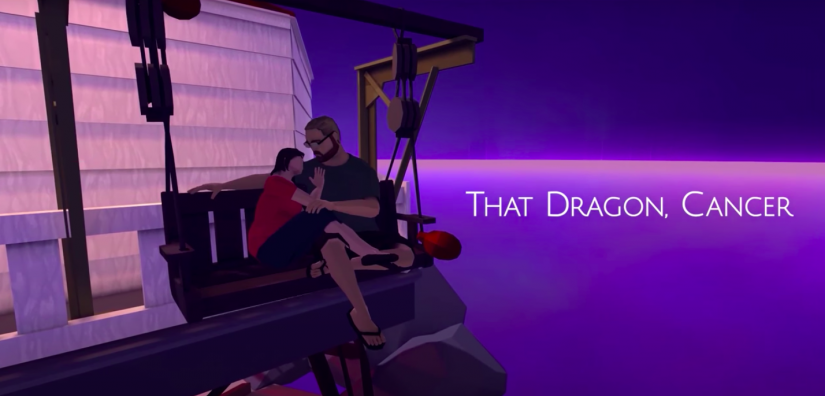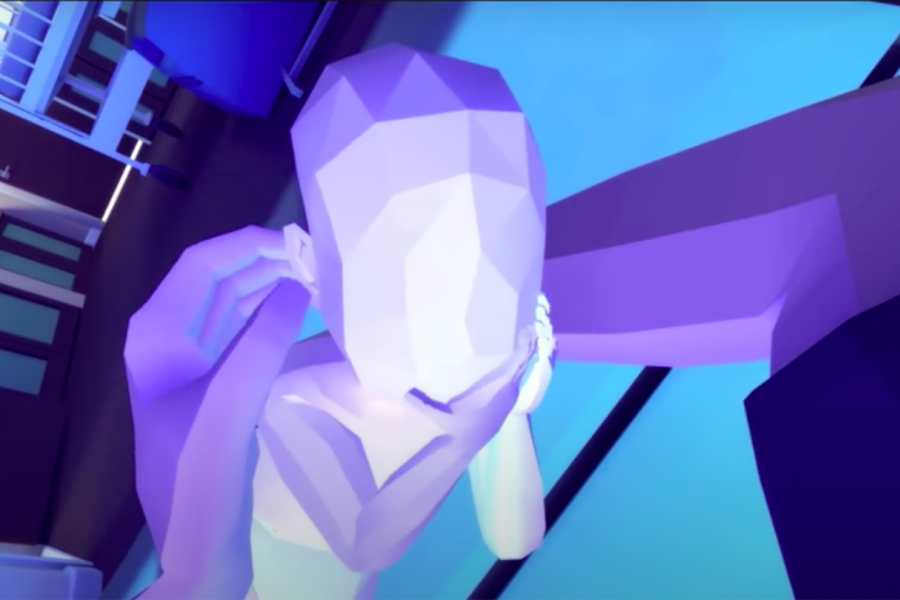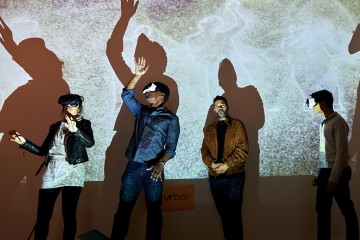When Ryan Green's one-year-old son was diagnosed with terminal brain cancer, he and his wife, Amy, knew they wanted to use art to memorialize Joel's life while he was still with them. They painted pictures, wrote a children's book, and directed a short film about Joel's short life.
But it was an unexpected medium that brought the Green's the most relief when Joel died at four years old: video games.
The couple translated moments from Joel's life and their own grief into the autobiographical video game, That Dragon, Cancer. The game puts the player in the shoes of Ryan and Amy and takes them through 14 short vignettes that alternately capture the moments of joy and sorrow they experienced during their four years with their child.

Image caption:That Dragon, Cancer takes the form of a point-and-click game, taking players through several realistic and fantasy depictions of Ryan and Amy Green's experiences with their son, Joel.
Monday, Green spoke with Johns Hopkins Professor Gabo Arora, founding director of the Immersive Storytelling and Emerging Technologies concentration of the MA in Film and Media. Together, they discussed the storytelling possibilities of the still-nascent medium of video games.
"We think of
That Dragon, Cancer was released to wide acclaim in 2016, receiving rave reviews in The Guardian, Kotaku, and GameSpot, as well as winning awards at the SXSW Gaming Awards, The Game Awards, and the Academy of Interactive Arts & Sciences D.I.C.E. Awards.
Green said that taking the game to gaming conventions was an eye-opening experience, as gamers there for more-traditional titles found themselves pulled into the emotional experience of Green's—and Joel's—life. Soon, he said, he found that they were telling him their own stories of grief and loss. Throughout it all, Green said the process of making the game and seeing the reaction to his story completely changed the way he thought about art.
"I was conditioned that art is the thing through which we advance truth," Green said. "This process became a journey where I thought I had all the answers in a tidy little bow, but I don't and I'm left with questions. At the end, is it good for me, as an artist, to ask questions and not have answers?"
Posted in Arts+Culture, Voices+Opinion
Tagged advanced academic programs, video games, film and media, virtual reality










